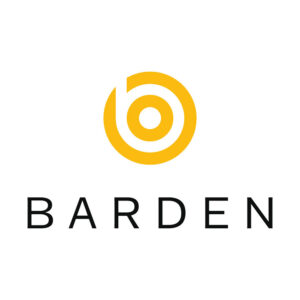Gillian Harford is the Country Executive at the 30% Club Ireland. Prior to this she worked with AIB for 39 years, holding some key roles including Head of HR Strategy & Planning. Gillian tells us how she initially joined AIB for 10 months but walked out of the door just a couple of weeks shy of 40 years after that.
In this first part of this blog series Gillian told us a little bit about herself, the start of her career in financial services and her career. Here in part two, Gillian shares how she moved into HR and the importance of mentors in her career.
FOS: So, tell us, you’re doing the credit card bit with Visa, it’s all going well, you’re starting off your career but where does it go from there? You don’t stay in credit cards?…
GH: That’s right. I moved, somewhat by accident! At the time the head of the credit card function got transferred to set up a new area in the bank, which back then was called Learning and Development, and included the training function. I ended up sitting beside him at his farewell drinks (I still don’t know if he did it on purpose or if it was by accident) where he told me he was interviewing some great people that day to be his deputy in the new team. He mentioned the best person for the job happened to be a woman, but she was about to go on maternity leave, and her baby was due in 2 months’ time. I said sure “give her the job” and put in a temporary person in the meantime and she’ll take it back over when she is back from leave. Three days later I was transferred to cover the maternity leave, and was given the opportunity to set up a new learning and development function. It was a fantastic opportunity and opened up a whole new world for me.
Following that I moved from job to job within HR. I think part of the reason I was able to stay in HR and to continue to develop, was that I ended up being a little bit of ‘the project person’. Every time I was starting to get a little bit bored a new project would come along, a lot of them business facing projects where I would go and be the HR person. I spent a lot of time with retail banking looking at things like opening hours, branch structures, branch transformation. When we moved into Poland I was part of the due diligence team for Poland. I also did work with the American team when we expanded into the States. From a HR perspective I also got to work on the design of really innovate programmes including flexible working, career frameworks, reward – the best of both worlds combining HR and Business projects for large numbers of employees. So by virtue of moving across projects whenever I was just about to get to the point where I was thinking it was time to do something else, or look for another company, another great project would come along.
FOS: That brings us back to something you said earlier. Many don’t realise that when you go into FS you don’t just go in and do one function continually for the rest of your life, but in fact the reality is that there are lots of different opportunities cross section internally. And I think that’s when mentors come into play. Tell us about mentors and the influence they’ve had throughout your career.
GH: It’s funny I come from a generation where we never talked about mentors or mentoring. There were just people who gave you really good advice at the time when you needed it. Now I’m a really big proponent of mentoring, and it’s one of the strong pillars of the 30% Club.
Looking back the very first ‘mentor’ was my first chief manager who encouraged everyone on the team to step up even those of us who were new and very junior. I just thought all chief managers behaved like, but as I saw more of the bank and those who never got the opportunity to even interact with their chief manager, I realised how great he was in terms of encouraging and directing my career. And thankfully I had many more great mentors after that.
For me a mentor really came to the fore usually when I was at a bit of a turning point or when I was in doubt about taking on a high risk project. It was great to have the chance to work through the options as to whether the project could give greater exposure or greater potential in the long run, or just a really interesting challenge. I really appreciated that advice.
I also recall two key mentoring moments. One was when I was considering doing a masters in HR. I had a great boss at the time who talked me out of it and said “your next big job is not sitting at the HR table, it’s sitting at the business table. Go and do your masters in the business space.” And he was right.
The second came not long after. I went to work for the chief executives team and I had a great mentor at the time who said “Gillian, when people go on to that floor they think they are really important because of who they are working for, and really they are not.. When you go to that floor stay true to yourself because we respect you for who you are not who you work for.” It was the best piece of advice I ever received.
Those pieces of advice about how you manoeuvre your career and also how you work your way through the culture of an organisation are invaluable.
In part three Gillian tells us about some of the key risks and challenges she has faced in her career so far.
Considering your career options or building your team?


 Jump Back
Jump Back

